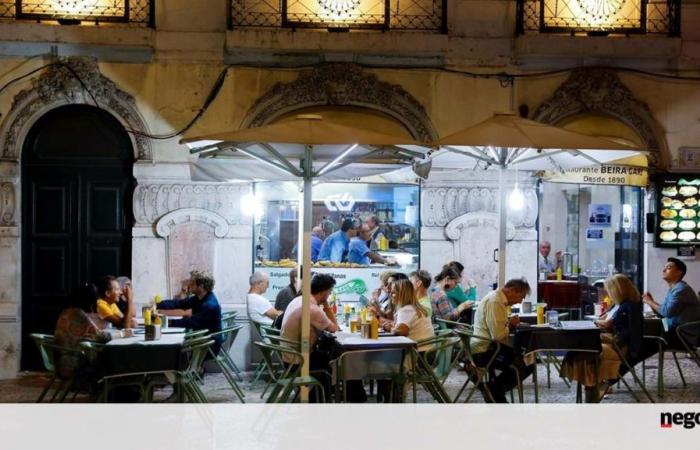A inflation in the Euro Zone slowed from 2.6% to 2.4% in March, according to Eurostat’s flash estimate released this Wednesday. This would have been the third consecutive month in which the year-on-year variation in inflation slows downafter an acceleration in consumer sales prices at the end of 2023. It is the lowest value since November 2023.
Among the four major components of the harmonized consumer price index (HICP) – food, alcohol and tobacco; energy; non-energy industrial goods; and services – there will have been a slowdown in the prices of all components, except energy and services.
Services recorded the highest year-on-year variation in March, surpassing food, alcohol and tobacco, which until now were the component with the highest inflation. In March, Eurostat’s flash estimate indicates that the year-on-year variation in the price of services remained stable at 4%. In energy, the year-on-year variation in the IHPC was -1.8%, a value that compares with -3.7% recorded in the previous month. This means that, although energy prices are even cheaper compared to last year, they are falling less than before, approaching positive values. The rise in oil prices due to the war in the Middle East contributed to this.
On the other hand, the year-on-year variation in the prices of food, alcohol and tobacco will have had a decreasing trajectory, slowing from 3.9% to 2.7% in March. This is already the lowest value in more than two years. Within this component, unprocessed (fresh) food products reached, for the first time since the beginning of this inflationary cycle, negative values (-0.4%).
In relation to non-energy industrial goods, the scenario would also have been one of deceleration: from 1.6% in February to 1.1% in March.
Eurostat’s flash estimate also reveals that the underlying inflation, which excludes the components of the shopping basket that are most subject to price variations (energy and food), slowed from 3.1% to 2.9%, following the slowdown in global inflation. The evolution of this indicator, which measures “critical inflation”, has been closely monitored by the European Central Bank (ECB).
Portugal on the list of countries with new acceleration in prices
Among the 20 countries in the single currency, Portugal was one of the countries that registered a new acceleration in prices in March, from 2.3% to 2.6%. In addition to Portugal, seven other countries (Belgium, Greece, Spain, Croatia, Italy, Latvia and the Netherlands) saw consumer sales prices accelerate again in March compared to the previous month. There were also three countries whose year-on-year HICP variation remained unchanged (Luxembourg, Austria and Slovenia).
A The highest annual rate of change in the HICP was recorded in Croatia (4.9%)followed by Austria (4.2%) and Estonia (4.1%). Conversely, the lowest year-on-year change was observed in Lithuania (0.3%)Finland (0.7%) and Latvia (1%).
(news updated at 10:56)






